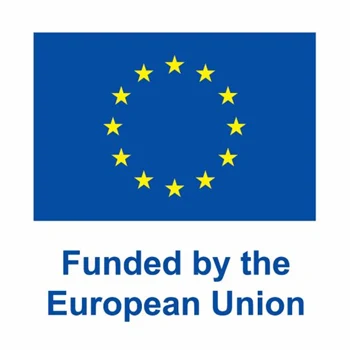Erasmus+
2021 marks the start of a new 7-year program period for Erasmus+. The program allows European institutions to apply for grants for different types of international cooperation.
The Erasmus+ program is a large part of internationalization at Mid Sweden University, and therefore plays a vital role in the work towards both the university’s strategy in regards to internationalization and for the implementation of the Action Plan for Internationalization 2020-2023.
Inclusion, sustainability, digitalization and active citizenshio
In the current Erasmus+ program period, there are four main priorities: Inclusion, sustainability, digitalization, and active citizenship.
In terms of inclusion, Mid Sweden University works to promote mobility opportunities to all students and staff, and recognizes the need for a variety of measure to ensure the message reaches everyone, including students from different backgrounds or with physical, mental or health related conditions. Additionally, the university works actively with widening access, that is recruiting students with fewer opportunities, for example from diverse backgrounds where the transition from school to university is less common. Increasing outgoing mobility is a national priority as well as one of Miun’s strategy goals, and we believe working with widening access will result in larger numbers of student mobilities in the long run.
Sustainability is another prioritized area in the upcoming Erasmus+ period. This entails, for example, environmental and climate issues, but there is also a need to integrate sustainability into other areas. Sustainable development is prioritized at Miun; the university has a Sustainability strategy as well as a Climate strategy. In addition to this we have 2 coordinators for sustainable development who focus on ensuring that the university reaches its goals for sustainability as defined in the strategy for 2023. Mid Sweden University already offers an extra travel stipend to outgoing students who choose to travel by train instead of plane to their exchange destination.
More information about the university’s work on Sustainable Development
The third goal is to make use of the possibilities that digitalization has to offer international cooperation. Several new digital tools will be required in the new Erasmus+ period, and new types of virtual and blended mobility possibilities will be introduced. The new digital tools will make the program more effective, and will simplify participation for all. Virtual exchanges can reach more participants. Digitalization is also meaningful from a sustainability standpoint, reducing both paper and physical travel.
The forth goal, active citizenship, is about encouraging participation in the surrounding community and increased understanding in the European Union and European interests. At Mid Sweden University, there are many opportunities to engage in society. Mid Sweden University has close, strategic cooperation with the surrounding community, for example with local schools and preschools, and activities in life long learning. These collaborations and activities aim to promote higher education, broaden recruitment, and also to generate interest in higher studies, including international opportunities and Erasmus+.
Collaboration with surrounding community
Erasmus Charter for Higher Education (ECHE) 2021-2027 (pdf)
Erasmus Policy Statement (pdf)
Action Plan for Internationalisation 2020-2023 (pdf)
